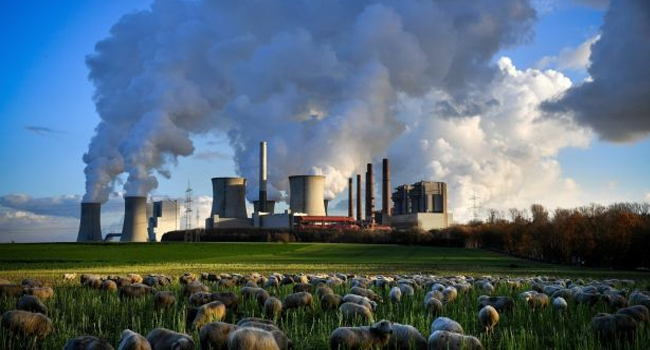Despite increased climate ambitions and net-zero commitments, governments still plan to produce more than double the number of fossil fuels. In 2030 than what would be consistent with limiting global warming to 1.5°C, according to the 2021 Production Gap Report. By leading research institutes and the UN Environment Programme (UNEP).
The report, first launched in 2019, measures the gap between governments’ planned production of coal, oil, and gas. And the global production levels are consistent with meeting the Paris Agreement temperature limits. Two years later, the report released on Wednesday found the production gap largely unchanged.
Over the next two decades, governments are collectively projecting an increase in oil and gas production. And only a modest decrease in coal production. Taken together, their plans and projections see global, total fossil fuel production increasing out to at least 2040. Creating an ever-widening production gap.
“The devastating impacts of climate change are here for all to see. There is still time to limit long-term warming to 1.5°C. But this window of opportunity is rapidly closing,” says Inger Andersen, executive director of UNEP.
- Advertisement -
Fossil fuel plans would far overshoot climate goals, says study
The world needs to cut by more than half its production of coal, oil and gas. In the coming decade to maintain a chance of keeping global warming from reaching dangerous levels. According to an UN-backed study released Wednesday.
The report published by the UN Environment Program found that while governments have made ambitious pledges to curb greenhouse gas emissions. They are still planning to extract double the amount of fossil fuels in 2030? Then what would be consistent with? The 2015 Paris climate accord’s goal of keep the global temperature rise below 1.5 degrees Celsius (2.7 degrees Fahrenheit).
Even the less ambitious goal of capping global warming at 2 degrees C (3.6 degrees Fahrenheit) by the end of the century compare to pre-industrial times would be overshot.
Climate experts say
Climate experts say the world must stop adding to the total amount of greenhouse gas in the atmosphere by 2050. And that can only be complete by drastically reducing the burning of fossil fuels as soon as possible, among other measures.
The report, which was released days before a UN climate summit begins October 31 in Glasgow. Most major oil and gas producers and even some major coal producers are planning on increasing production until 2030 or even beyond.
It also concluded that the group of 20 major industrialised and emerging economies have invested more into new fossil fuel projects than into clean energy since the start of 2020.
The disparity between climate goals and fossil fuel extraction plans termed the production gap will widen until at least 2040, the report found.
This would require increasingly steep and extreme measures to meet the Paris emissions goal, UNEP said.
There is still time to limit? Long term warming to 1.5C,? But this? The window of opportunity is rapidly closing, said the agency’s executive director, Inger? Andersen, adding that governments should commit to closing the gap at the Glasgow climate summit.
The report, which had more than 40 researchers contributing, examine 15 major fossil fuel-producing countries.
For the United States, they found that government projections show oil and gas production increasing to 17 per cent and 12 per cent, respectively, by 2030 compared to 2019 levels.
Much of that would be exported, meaning the emissions from burning those fossil fuels would not show up in the US inventory although they would add to the global total.
US coal production projects to decline by 30 per cent over the coming decade compared to 2019.


